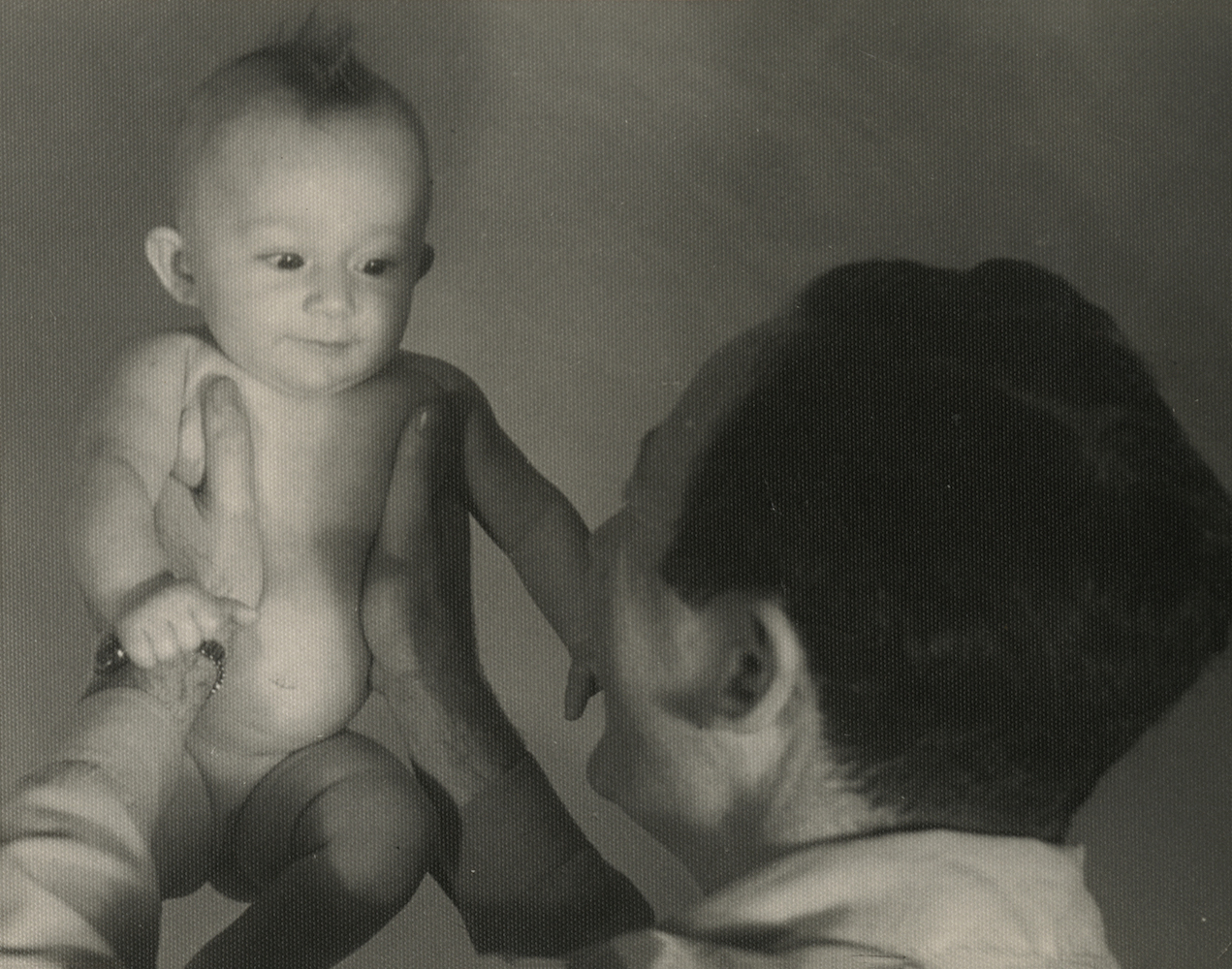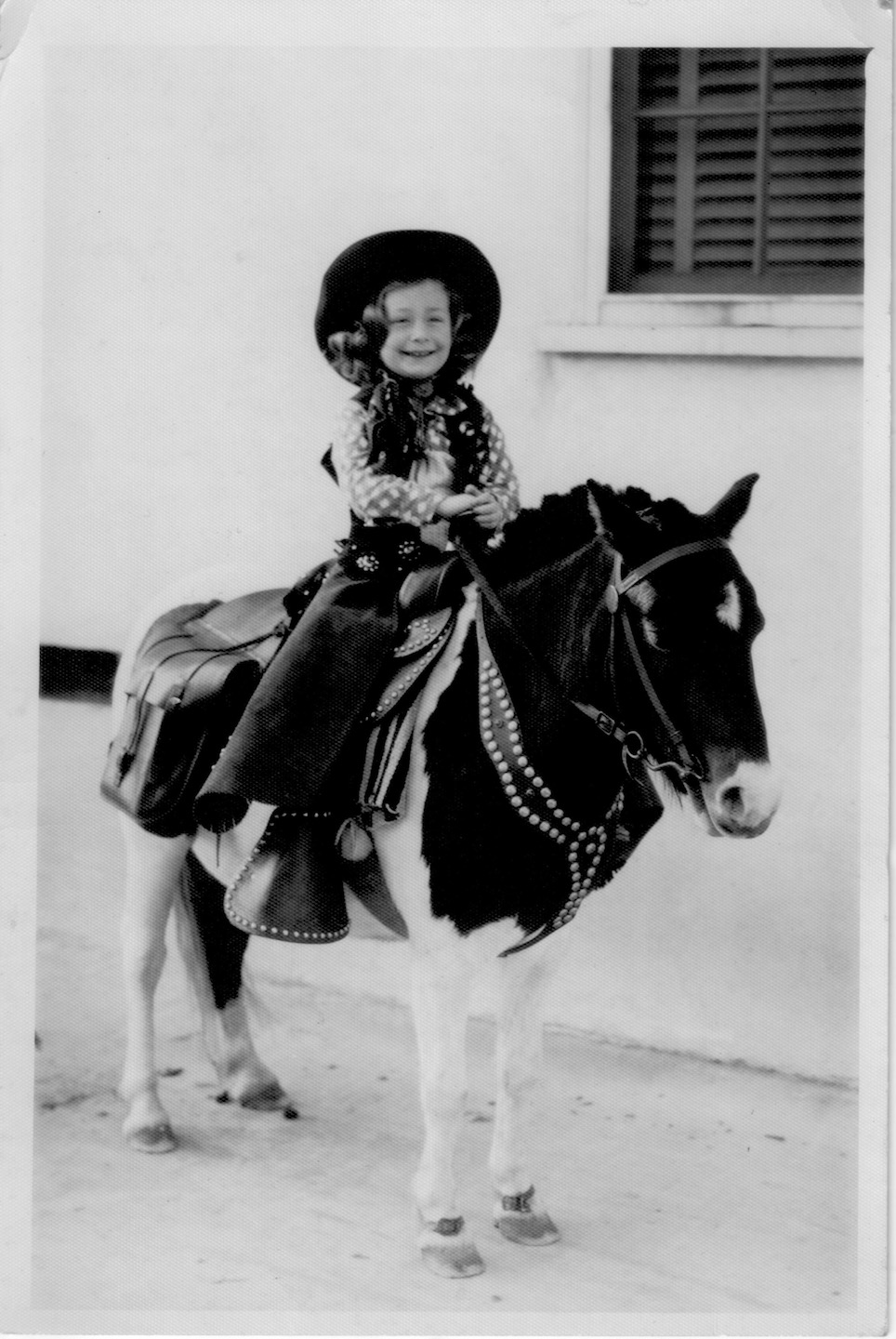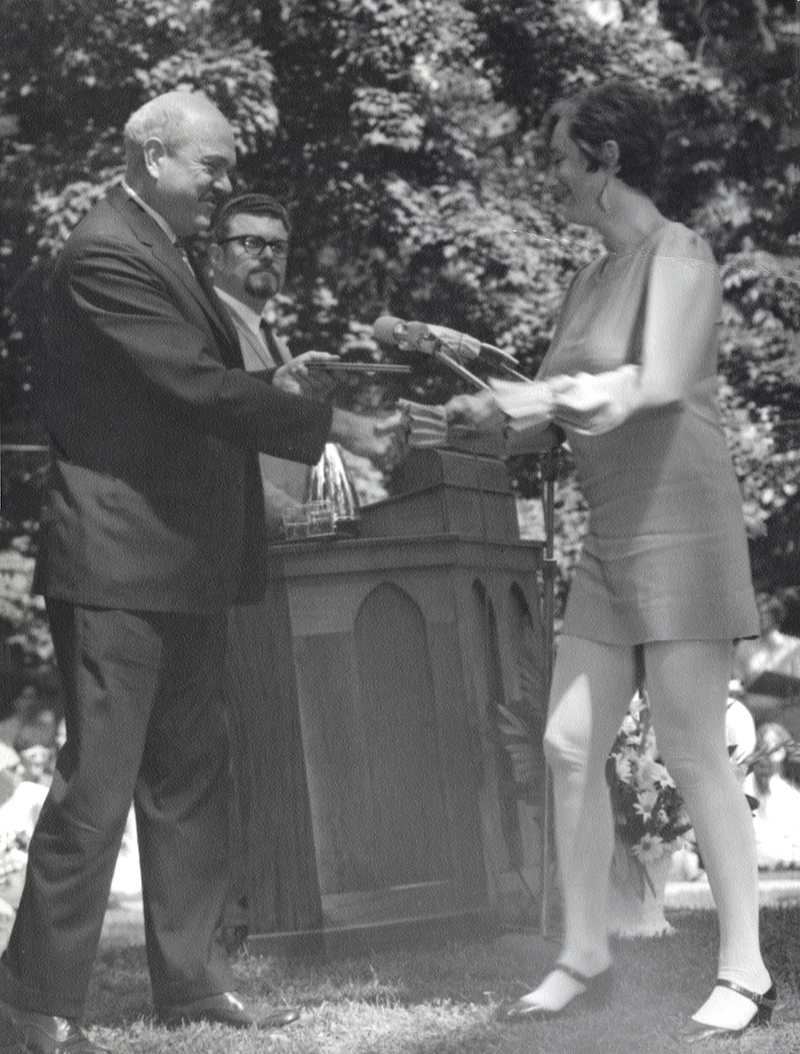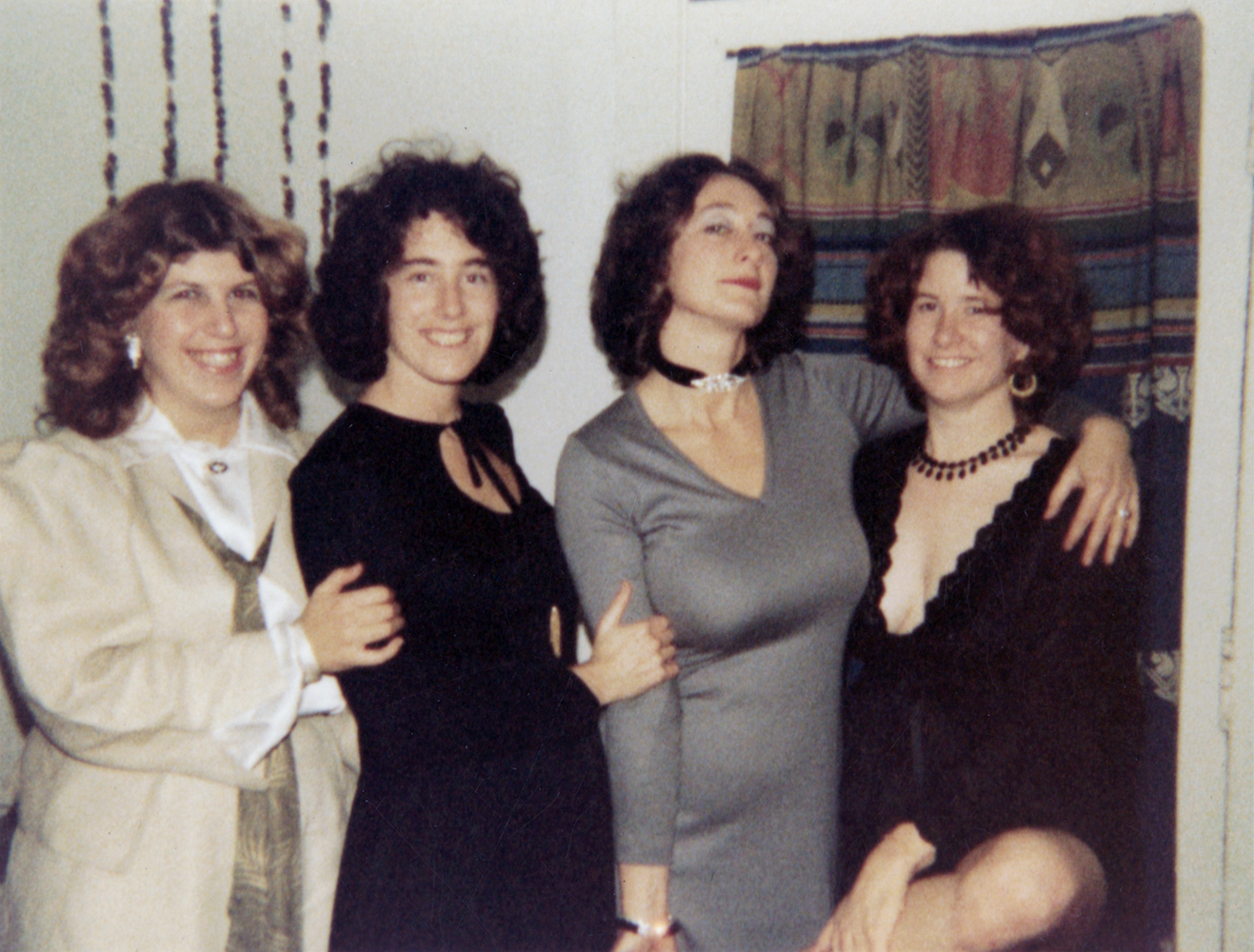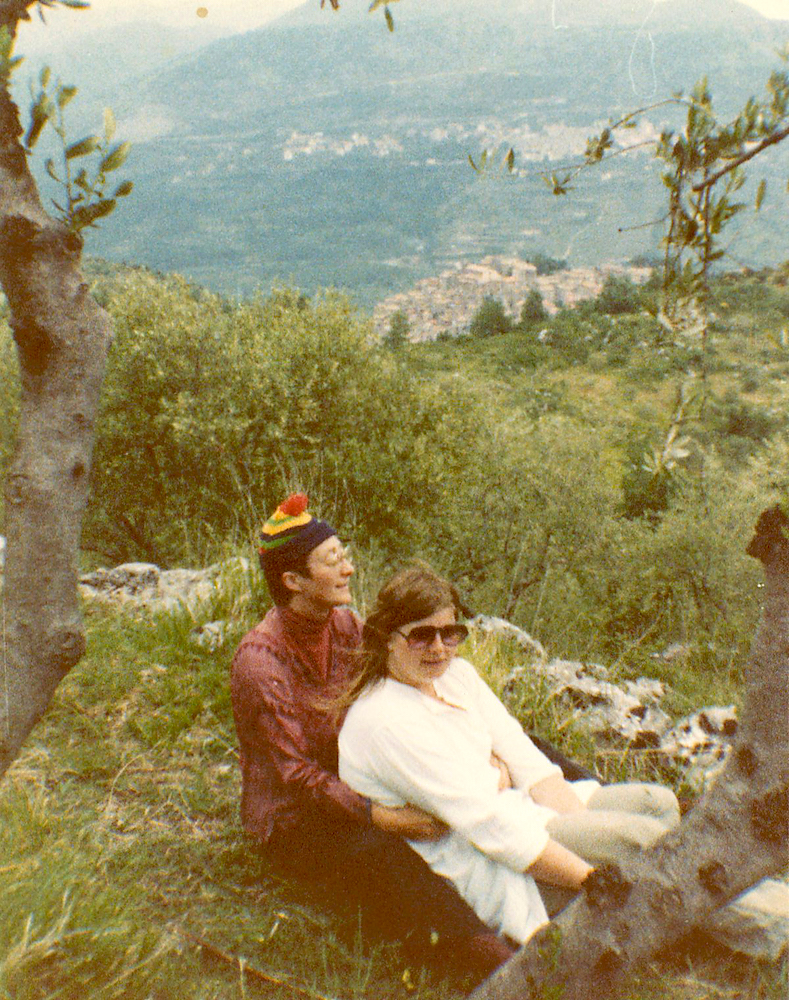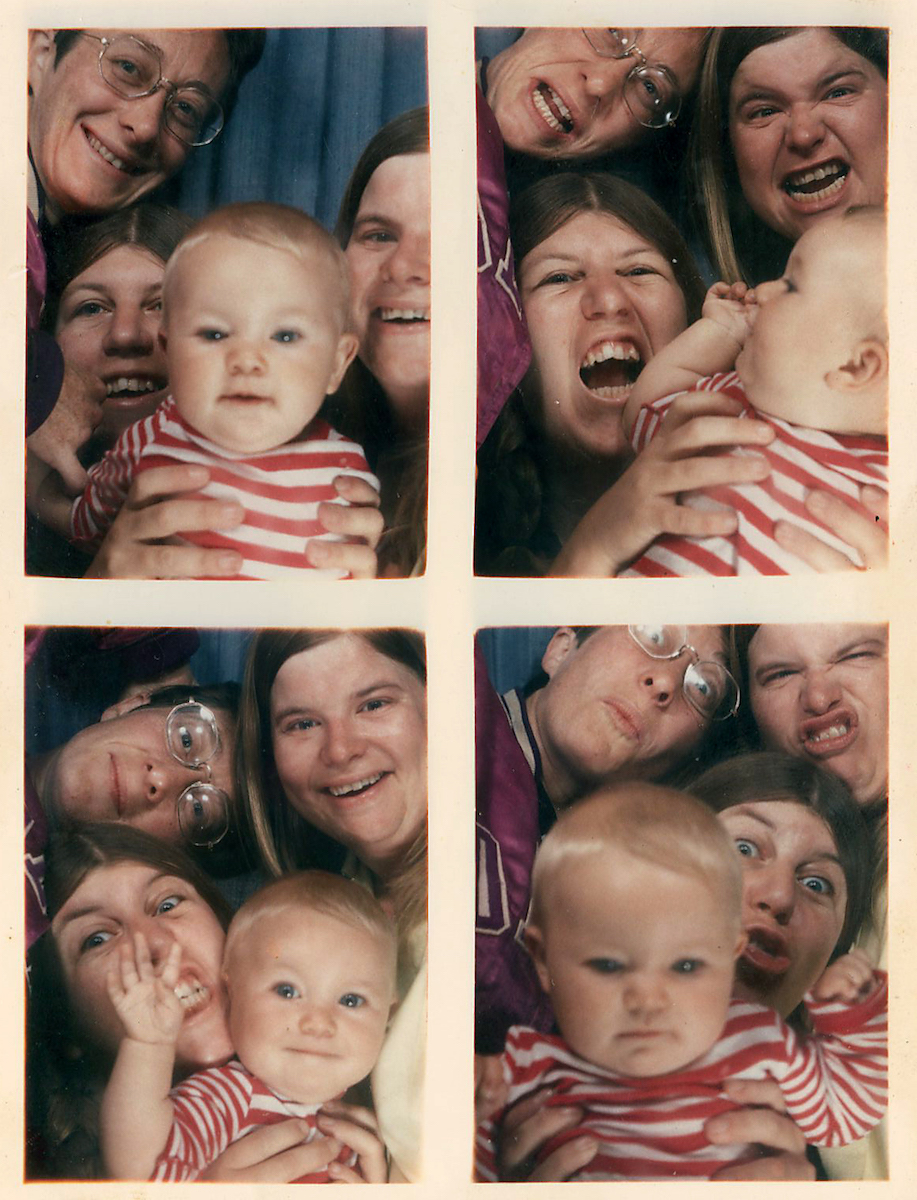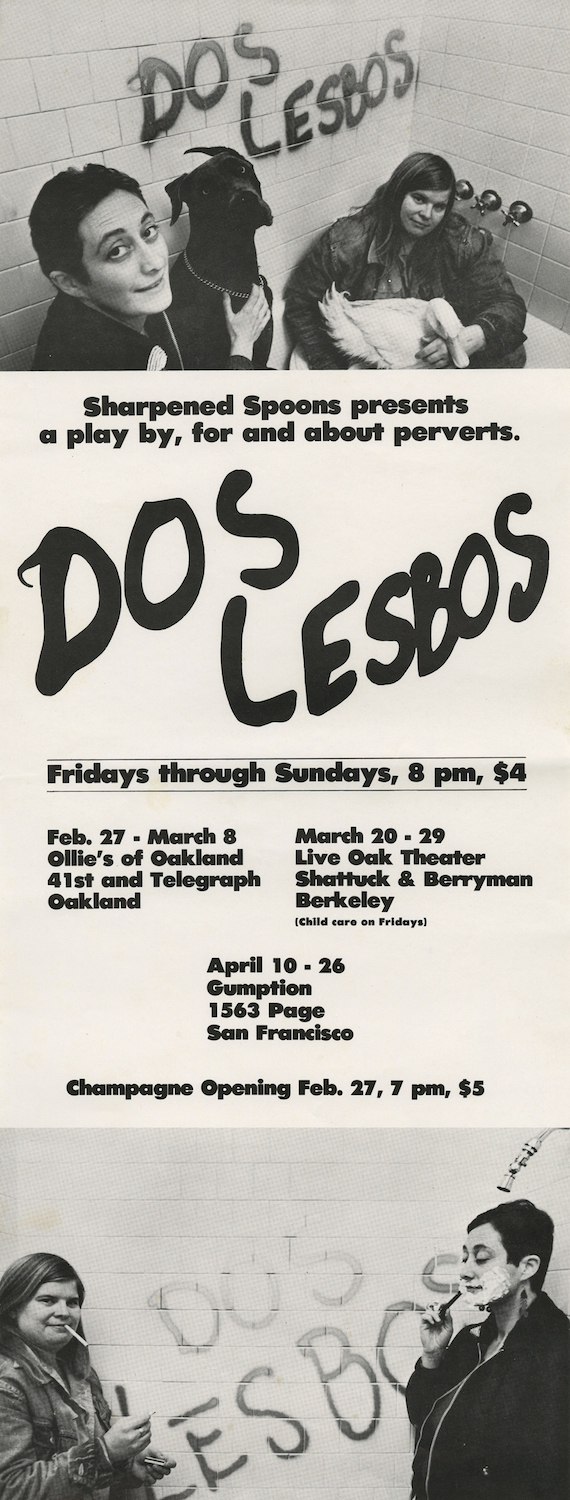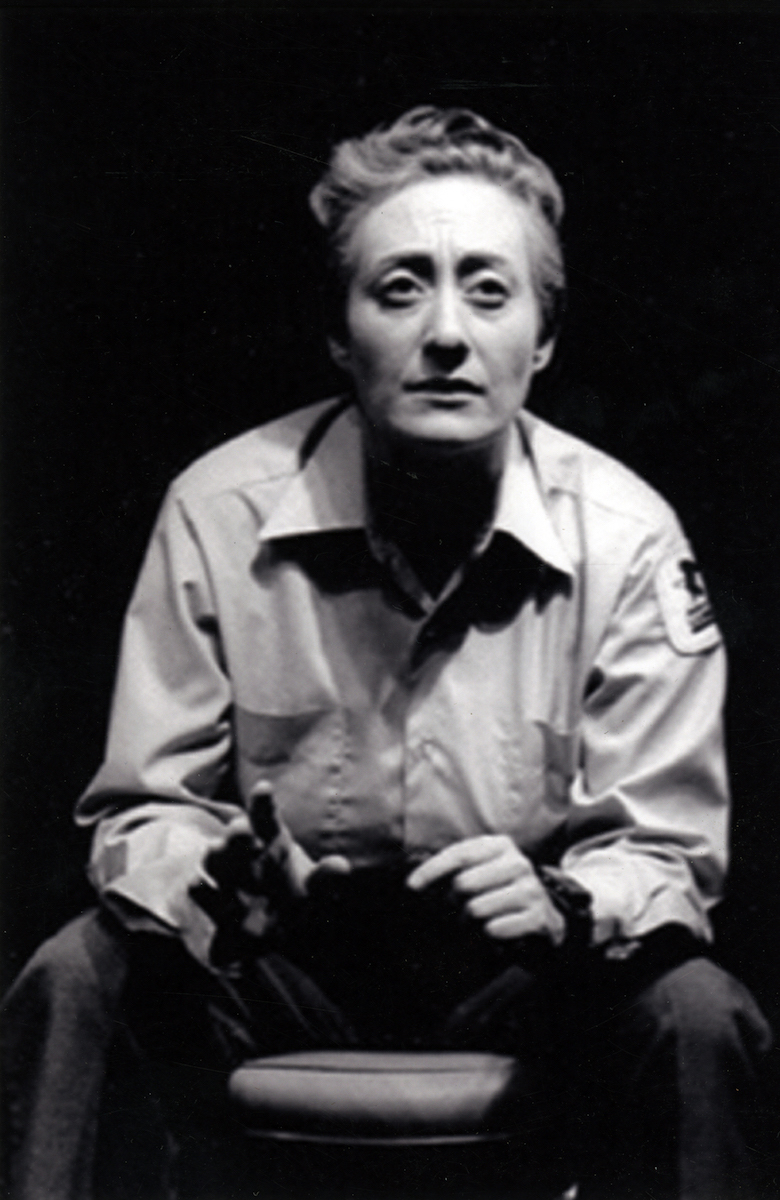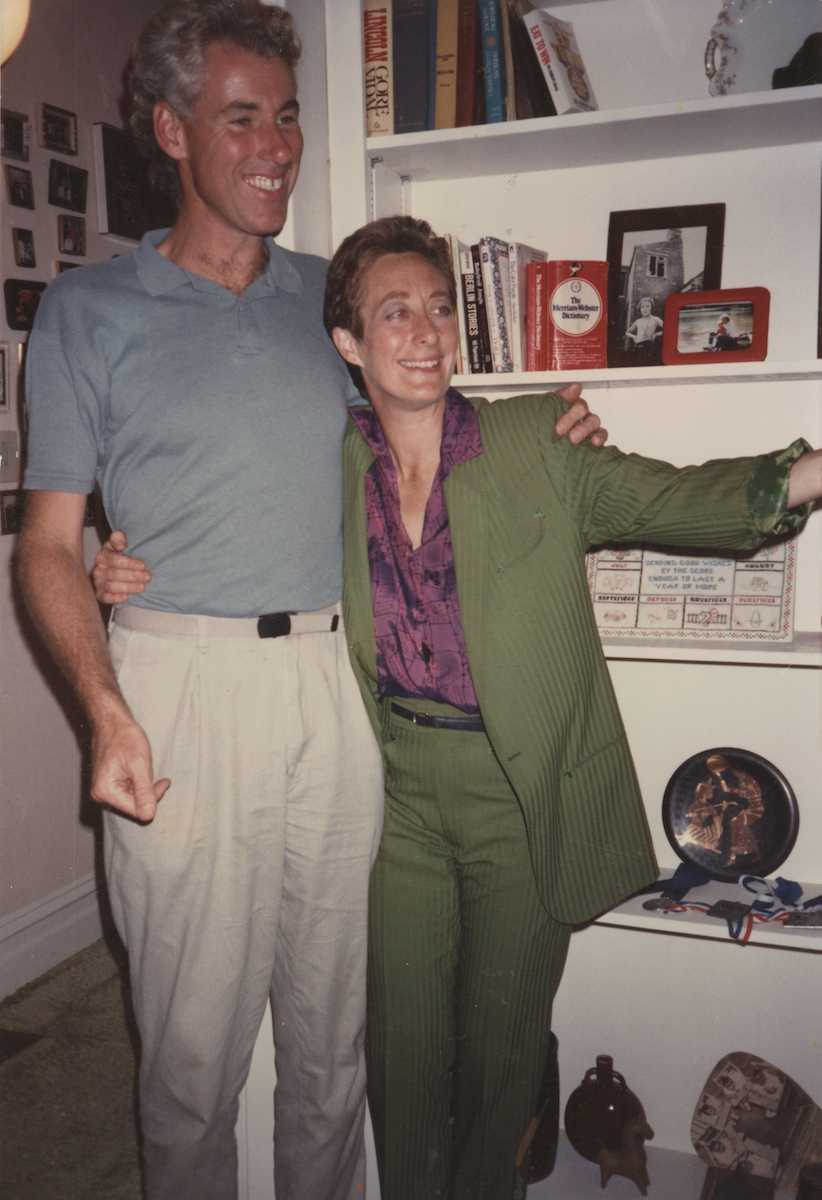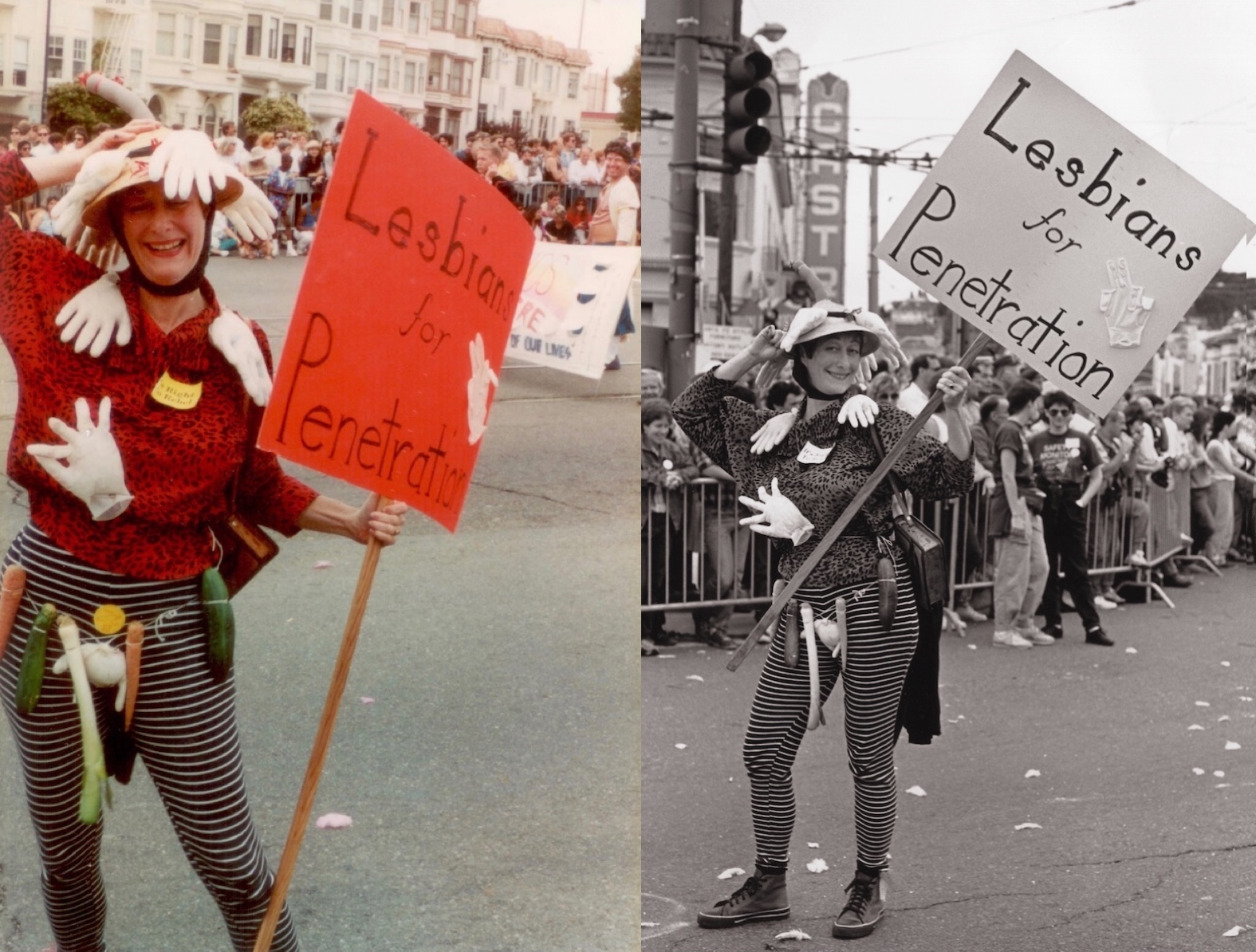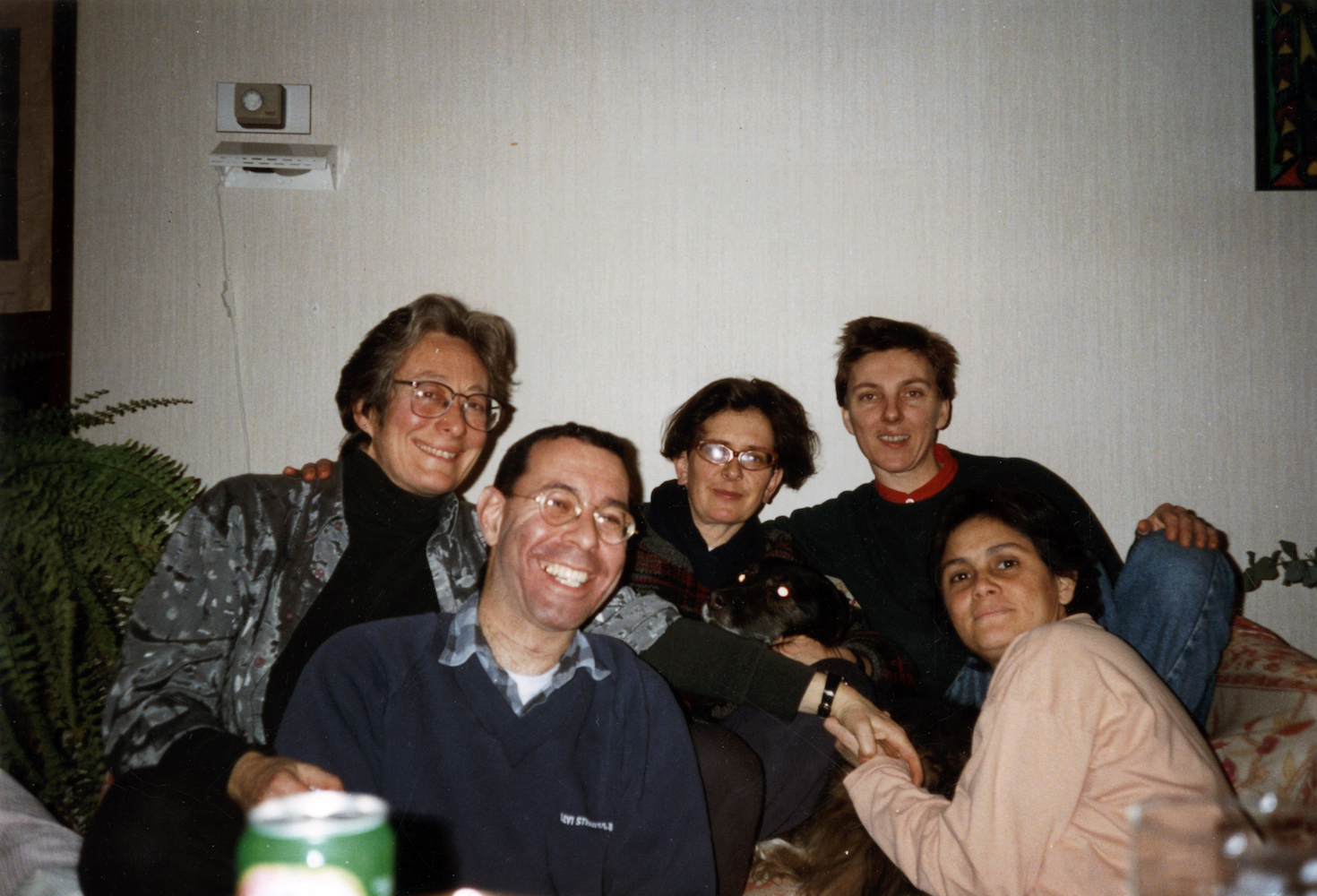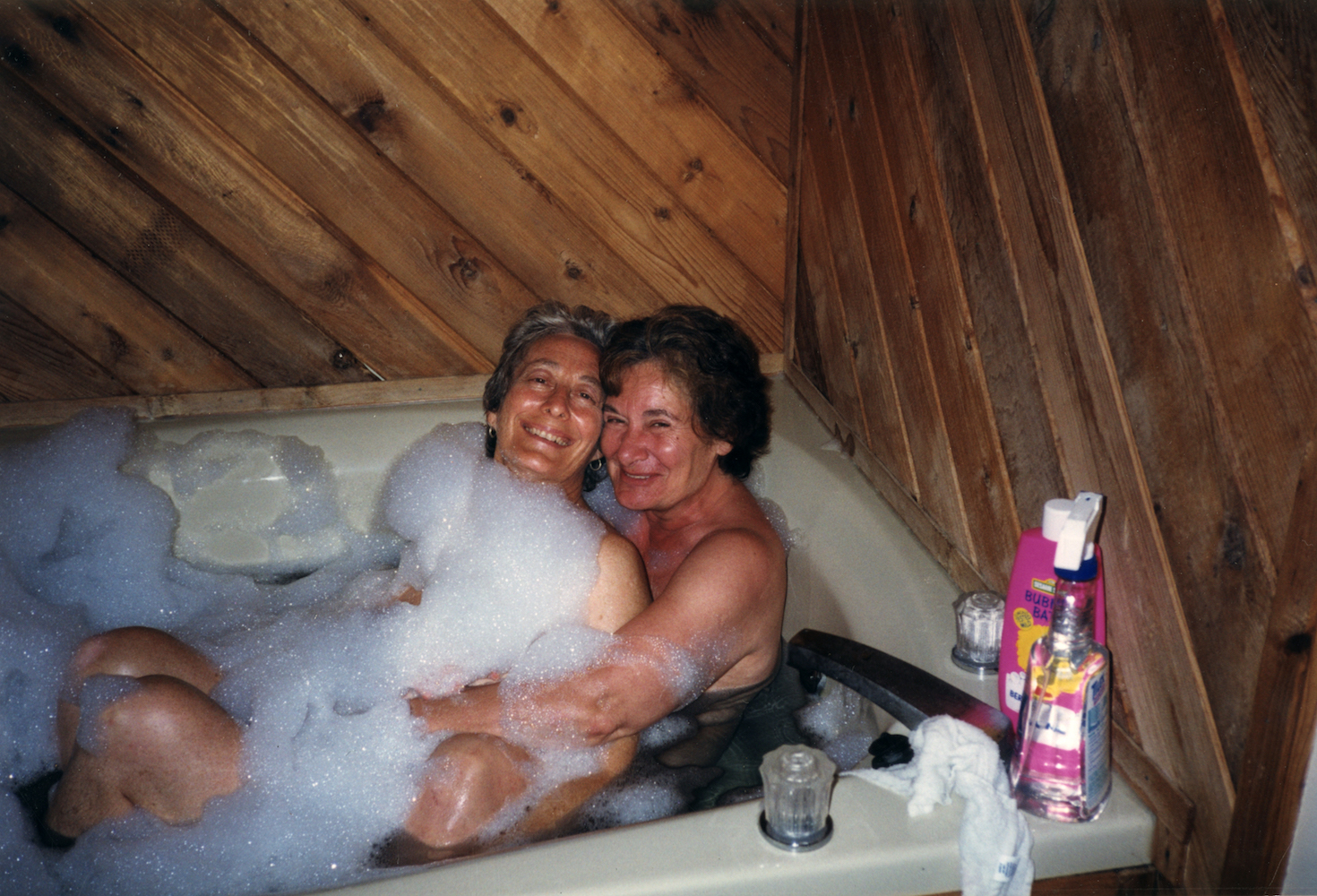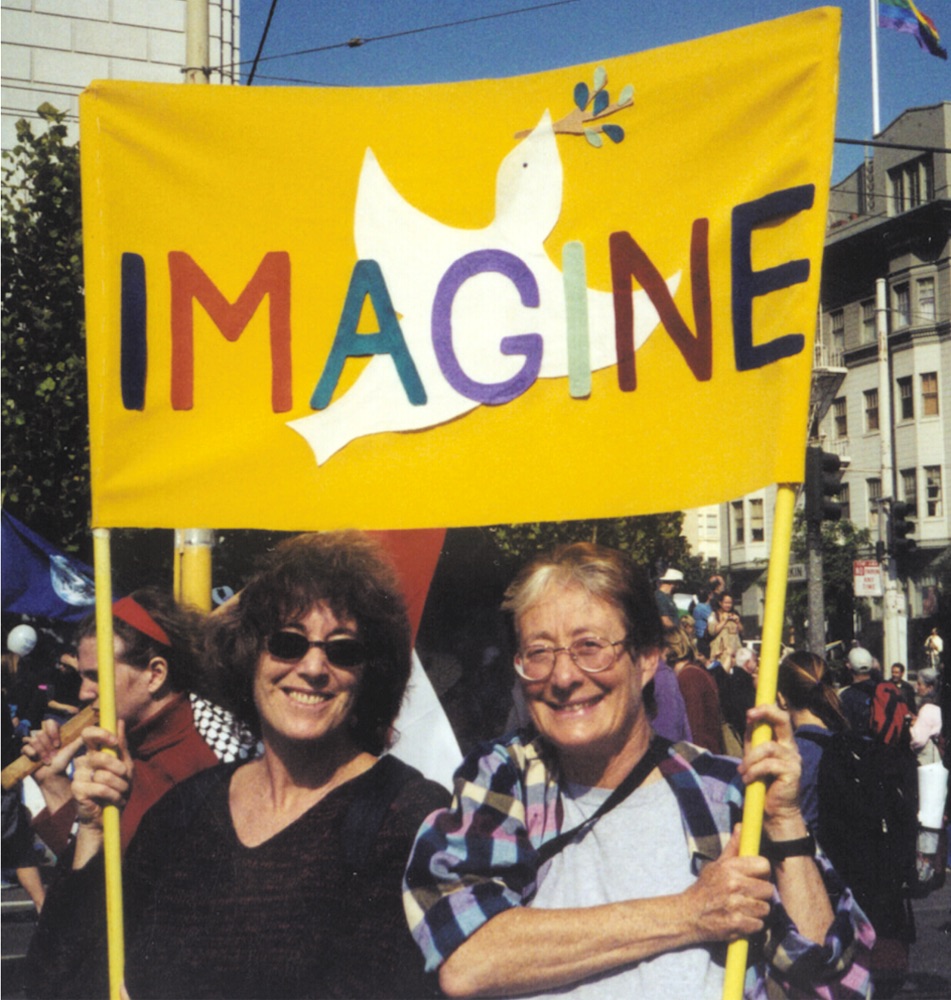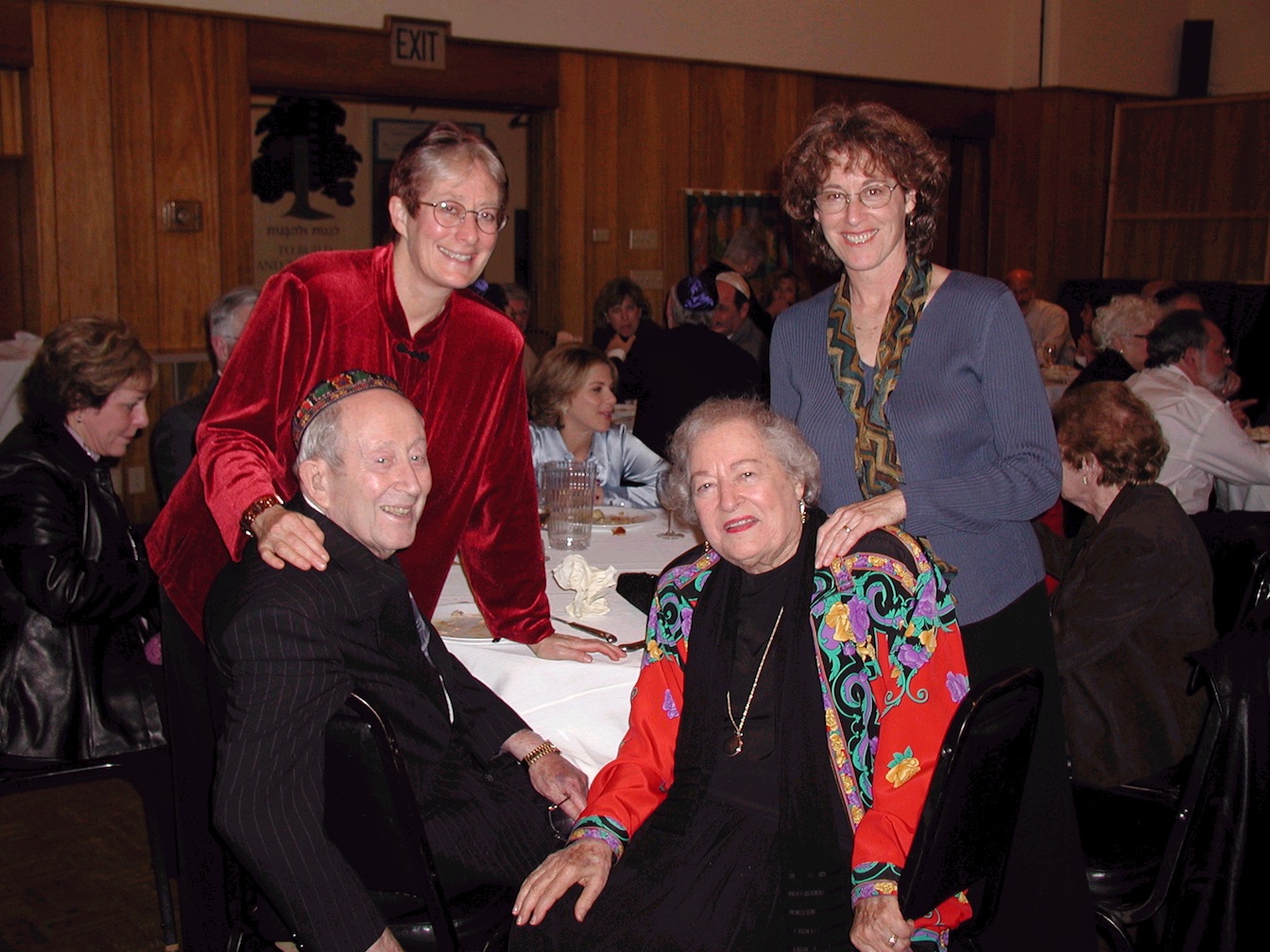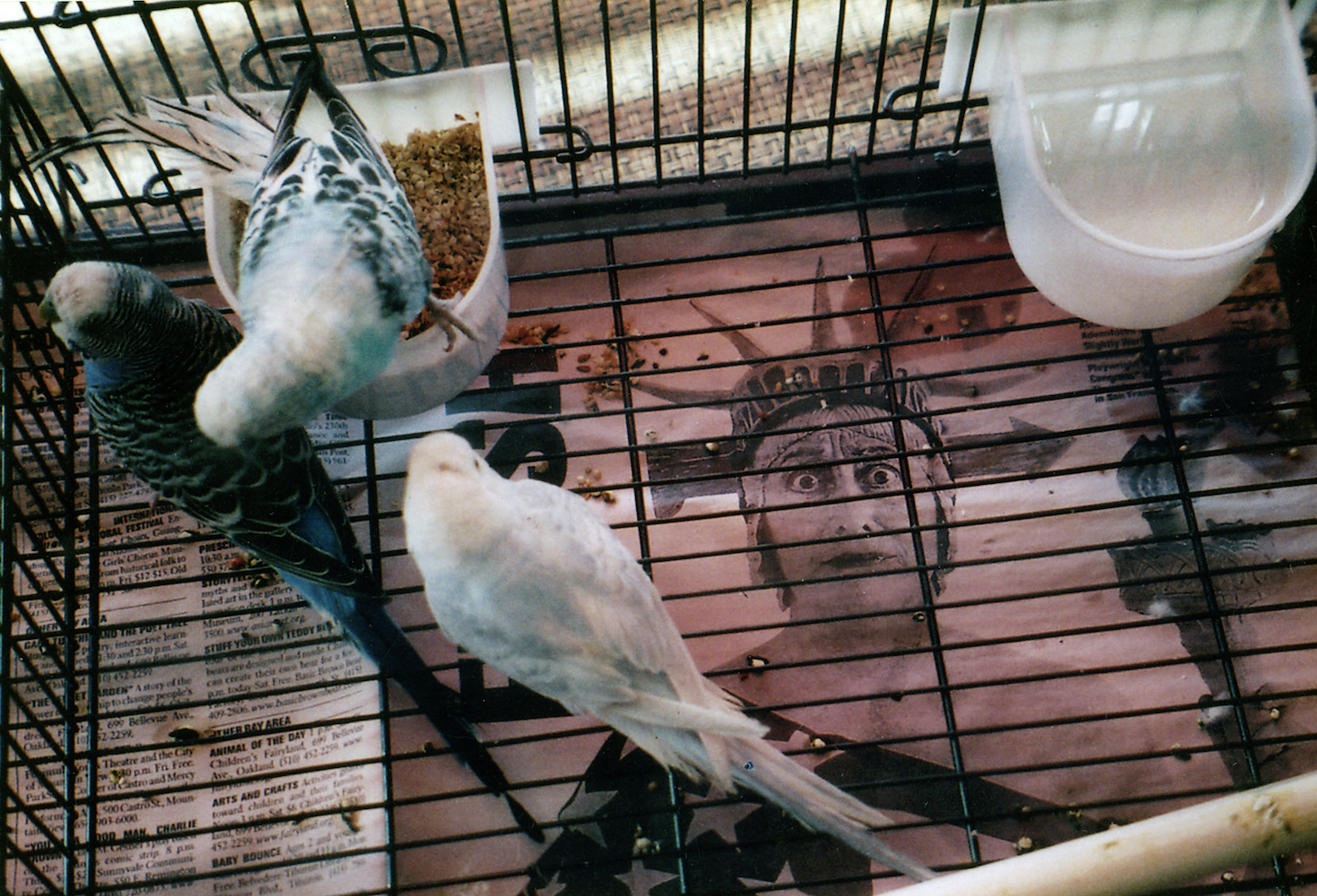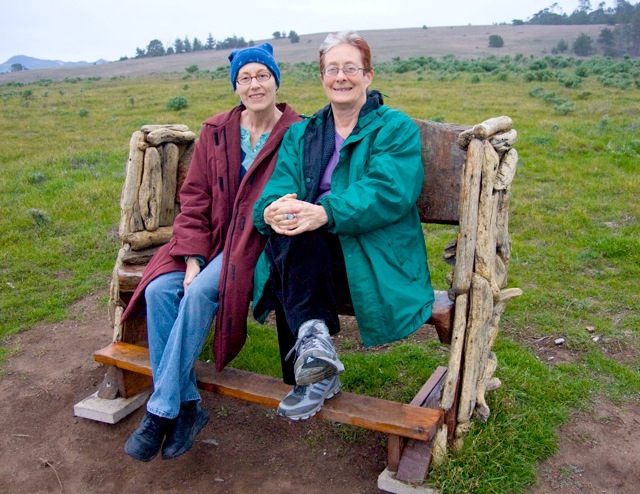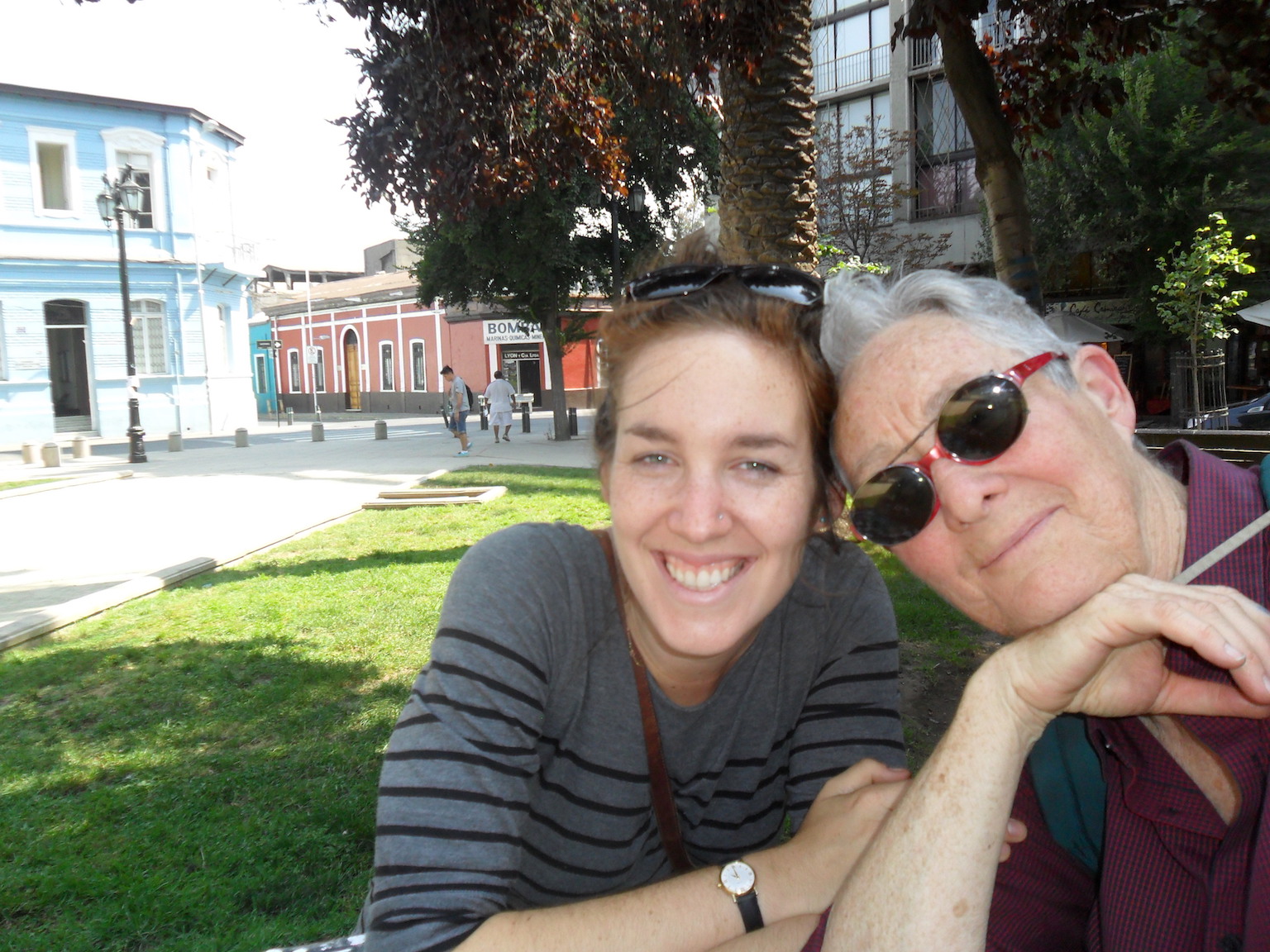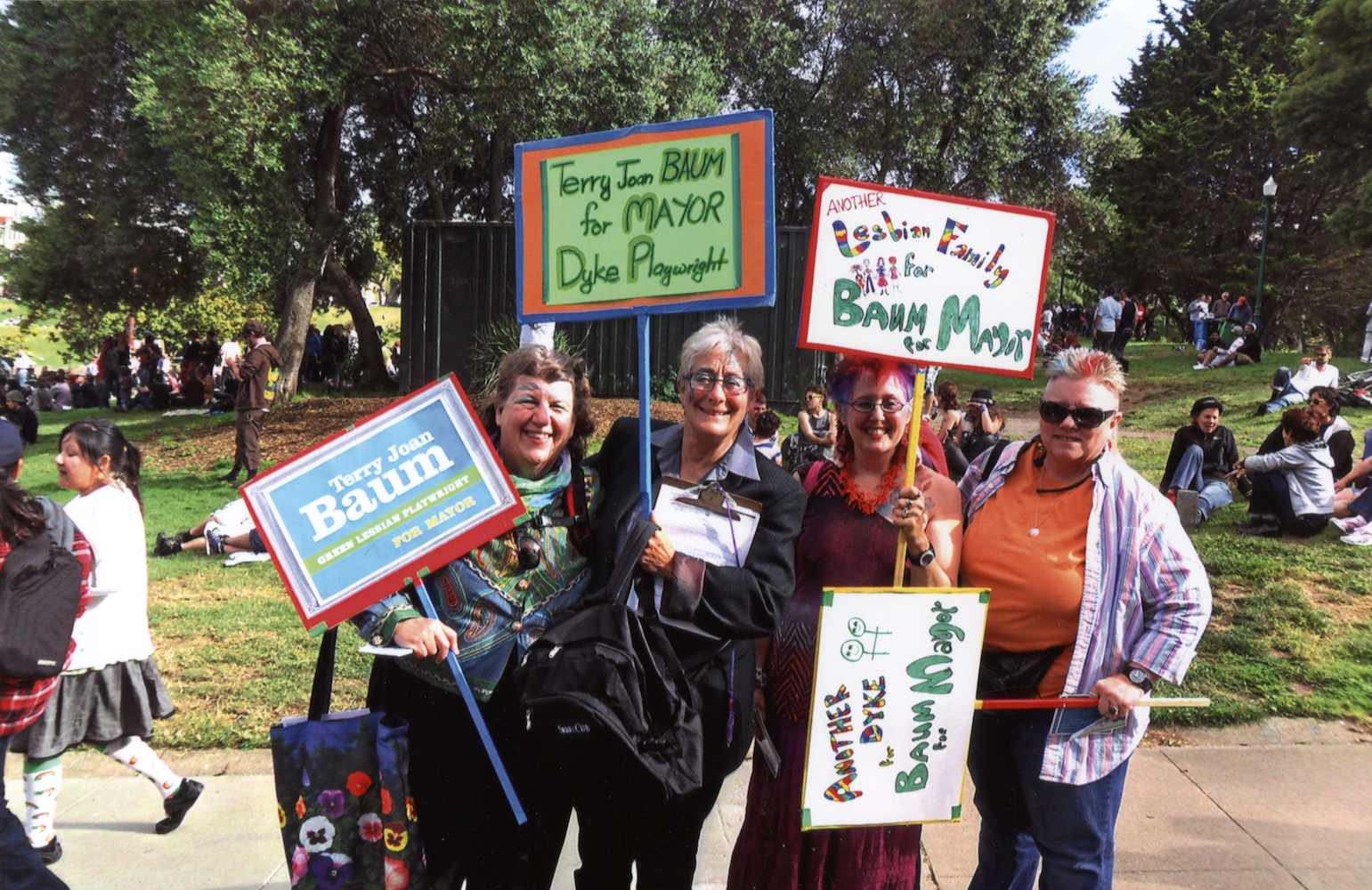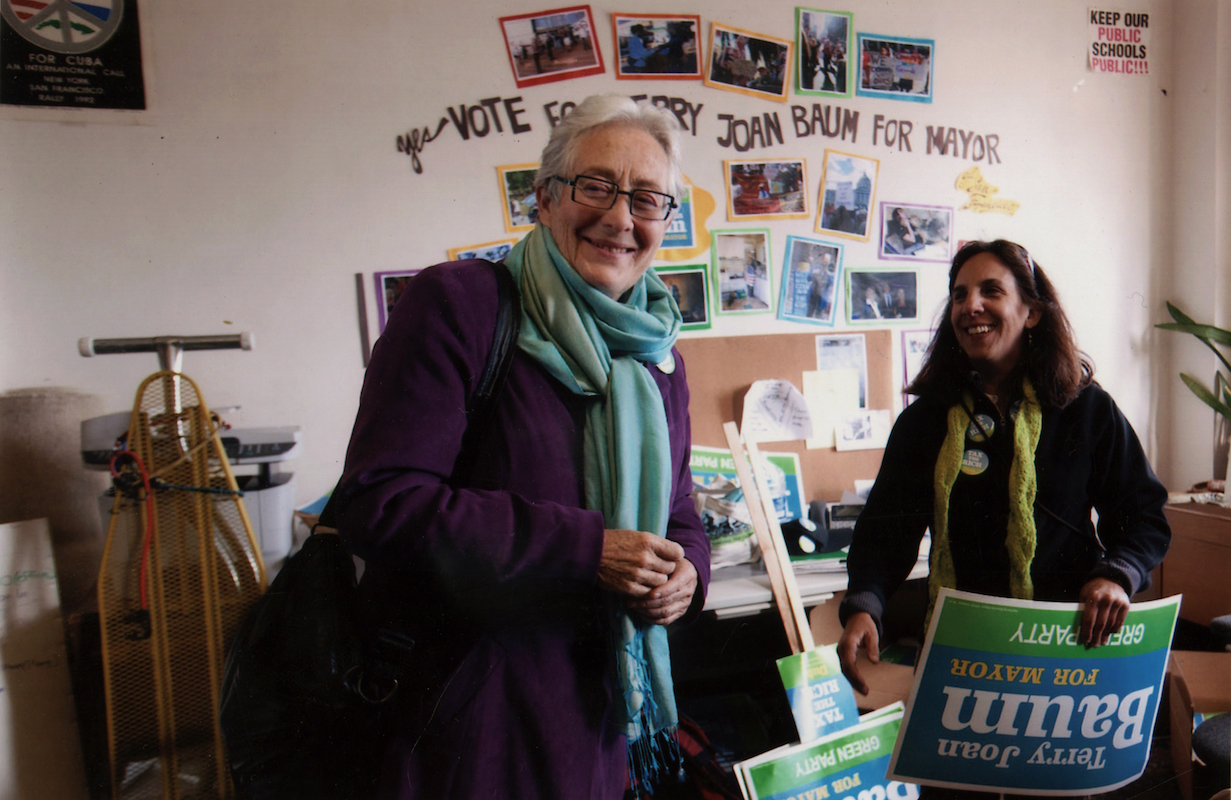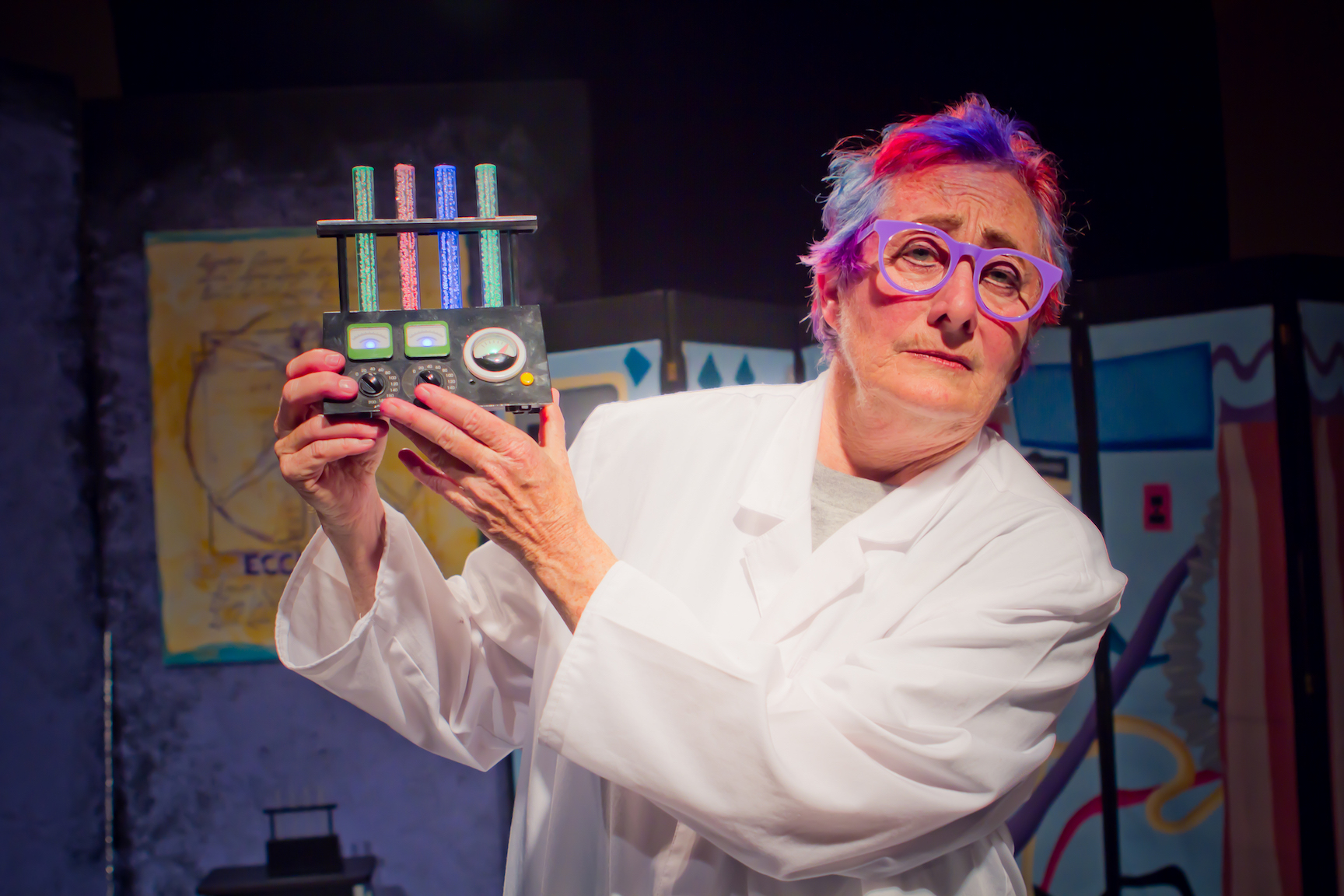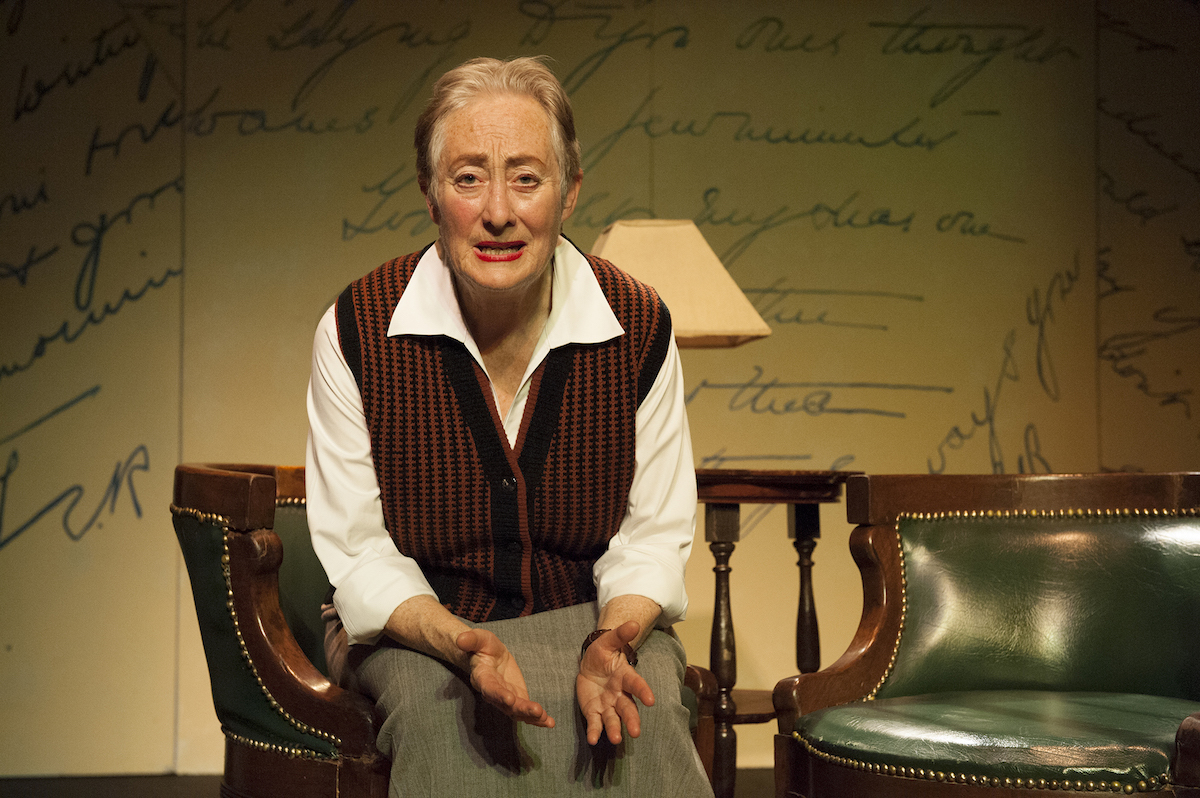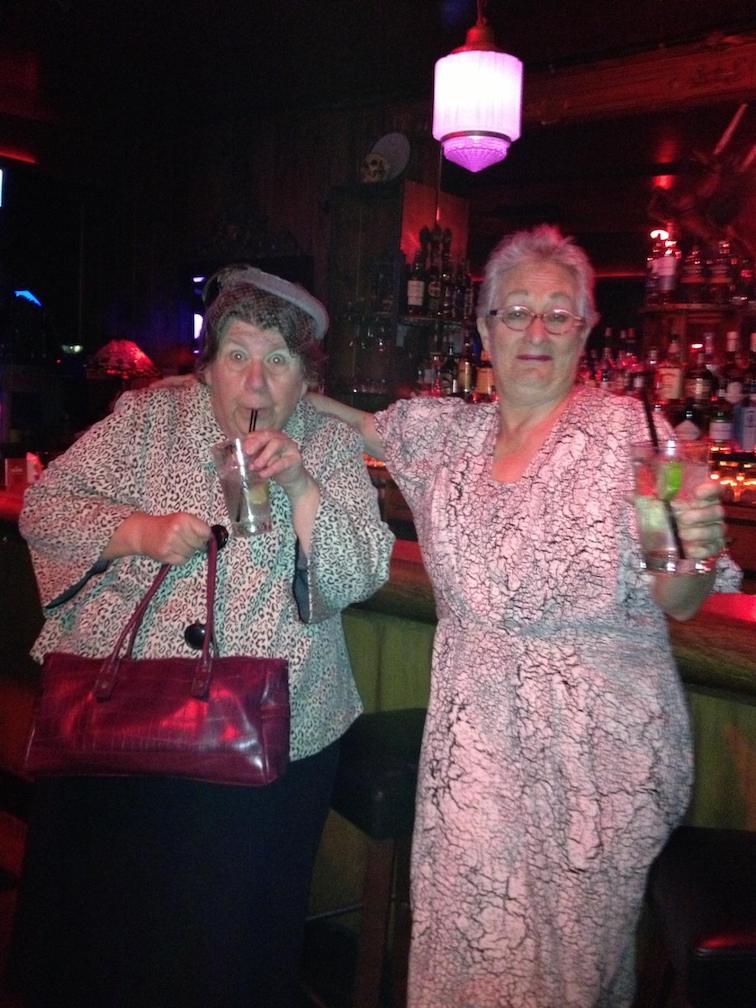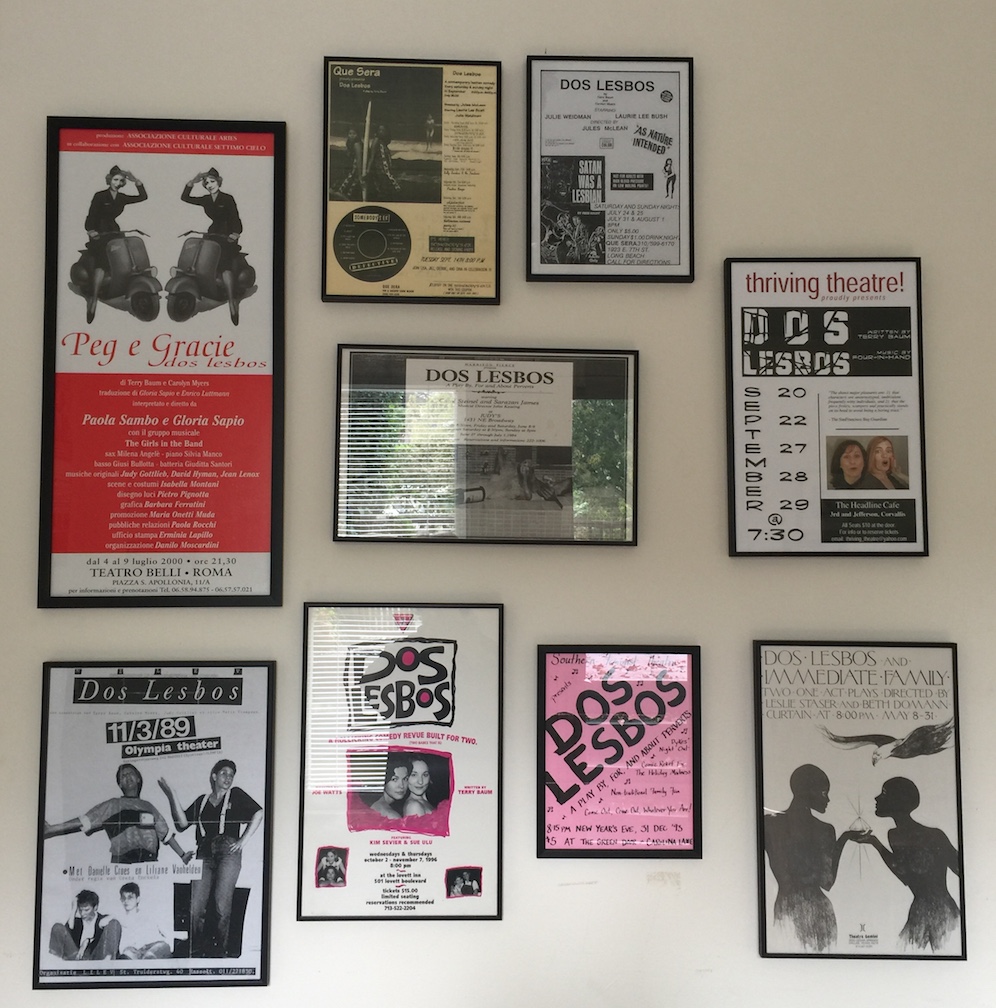Terry Baum with her father, 1946. Terry shares, “We always had a special relationship. We were very close. In many ways, I’m exactly like him, except that I’m a woman born at a different time who went to Antioch College.”
Terry in the driveway of her home, Culver City, CA. “I was always a horse-crazy girl, and I love this photo because in my head, I’m NOT in a driveway. I’m a cowgirl riding the range.”
Terry graduates from Antioch College, 1969. Photo credit: Macy Baum. Photo courtesy of Terry Baum.
Terry as a “newly-minted lesbian” on New Year’s Eve, 1976. L-R: Carolyn Myers, her collaborator; Nancy Baum, her sister; Terry Baum; Sherry McVickar, her first woman lover. Photo courtesy of Terry Baum.
Terry with her lover, Alice, in the Swiss Alps during Lilith Theater’s first European tour, 1979. Photo credit: Carolyn Myers. Photo courtesy of Terry Baum.
Photo booth selfie while traveling on the European tour with Uma, Carolyn’s 6-month old baby. Photo courtesy of Terry Baum.
Poster for the original production of “Dos Lesbos“ in 1981 with Terry Baum, Alice Thompson II, Maeve the Great Dane, and Hubert the Duck. “Dos Lesbos,“ written by Terry and Carolyn Myers, was the first play about lesbians from their own point of view that many people had seen. It inspired “Places, Please,” the first anthology of plays by lesbians (1985), and offended the Pope during World Pride 2000 in Rome. Photos by Nina LoRicco, poster design by Fraser MacBeth. Photo courtesy of Terry Baum.
Photo from Terry’s play “Immediate Family” (1983) about a woman at the bedside of her comatose partner, facing the fact that she has no legal right to say anything about her partner’s medical treatment. This play about marriage rights was produced in several cities that had anti-gay initiatives on the ballot. Photo credit: Cammie Toloui. Photo courtesy of Terry Baum.
Terry and Marty Selim, one of her closest friends, 1988. Marty died of AIDS in 1991 and lived with Terry the last nine months of his life. Terry shares, “For all of us in San Francisco, the epidemic was a huge part of our lives. Marty was my greatest loss.” Photo credit by John Camp. Photo courtesy of Terry Baum.
Terry at the San Francisco Gay Pride Parade, 1989. “I was a one-woman contingent. No one would march with me.” Photo credits by John Camp and Bonnie Daley. Photos courtesy of Terry Baum.
Terry at a New Year’s Eve gathering to watch Doris Day movies with the Doris Day Gay Fan Club, Amsterdam, 1993. L-R: Terry, Elliot Rubin (close gay friend, composer and choral conducter), Godelieve Smelt (on-again-off-again lover, painter), Cory (a passing friend), and Diana Avila (one of Terry’s “great loves,” a Costa Rican poet working for the International Press Service in Amsterdam). Photo courtesy of Terry Baum.
Terry with her lover, Jessica Nooney, at a friends’ house in the country outside of NYC, 1999. Photo credit: Florence Yee. Photo courtesy of Terry Baum.
Terry and her sister, Nancy Shapiro, demonstrating against the invasion of Afghanistan with a banner made by Nancy, San Francisco, 2001. Photo credit: Susan Miller. Photo courtesy of Terry Baum.
Terry and her sister, Nancy Shapiro, with their parents, Macy and Suzanne Baum, at Nancy’s daughter Rose’s batmitzvah, Berkeley, CA, 2002. Photo credit: Janaki Wilkinson. Photo courtesy of Terry Baum.
Terry’s sister Nancy came across a photo of Terry at the bottom of a bidcage in a pet shop near her house, 2006. The San Francisco Chronicle featured Terry’s photo from her play “Baum for Peace” about her run for U.S. Congress in 2004. Photo courtesy of Terry Baum.
Terry with her sister Nancy, who died in 2009.
Terry with her niece Rose Shapiro. After her sister died, Terry grew very close to her niece.
Terry ran for Mayor of San Francisco in 2011. (L-R) Carolyn Myers, friend and general assistant, Terry, and close friends, LauRose Felicity and Calla Felicity, Dyke March, San Francisco, 2011. Photo courtesy of Terry Baum.
Terry with her campaign manager, Sue Vaughan, San Francisco, CA, 2011. “I made a difference and had a good time.” Photo credit: Carolyn Myers. Photo courtesy of Terry Baum.
Terry as Dr. Gertrude Lesbostein in her play “Bride of Lesbostein,” a production of The Crackpot Crones, 2013. Photo credit: Liz Payne. Photo courtesy of Terry Baum.
2014 publicity photo of Terry for “Hick: A Love Story,” about Lorena Hickok, Eleanor Roosevelt’s lover, that Terry started performing across the country in 2013. Photo credit: Lynn Fried. Photo courtesy of Terry Baum.
Carolyn Myers and Terry, as “Eve in Therapy,” at the Stud, a San Francisco bar, where there are soon to perform a scene from their show, A Coupla Crackpot Crones, 2014. Photo credit: Donna Mori. Photo courtesy of Terry Baum.
Wall of posters of Terry’s many independent productions of “Dos Lesbos,” including an Italian production (upper left), Belgium, 2016. Photo courtesy of Terry Baum.
Terry Baum was born November 27, 1946 in Los Angeles. She describes her early life in LA as a “reasonably happy Jewish middle-class childhood.” During her reasonably happy adolescence, she discovered the joy of theater. For a high school class, she wrote a journalism-themed musical parody of My Fair Lady, retitled My Fair Reporter. While her theatrical career began with songs like “I could have typed all night,” she went on to write and direct plays that tackle political and social issues ranging from gay marriage and the Holocaust to religious conversion and queer history.
In 1968 while pursuing a degree in theater at Antioch College in Ohio, Terry made her directorial debut with Jack or the Submission. Two years later, Terry received an incredible education when she went to work as legendary feminist and politician Bella Azbug’s personal assistant during her first political campaign, which culminated when Azbug was elected to Congress.
Many years later, Terry would return to politics. But first, she wrote political plays about gay marriage, including Immediate Family in 1983. After founding a community theater in Santa Barbara, and a feminist theater group called Lilith in San Francisco, Terry moving to Amsterdam in search of more support for her work. While Terry’s professional life flourished, her family increasingly shamed her for coming out as a lesbian and rejected her chosen career path. Still, Terry pursued theater and toured multiple shows throughout the US and Europe.
Theater and politics are constant threads through Terry’s life. In 1992, she worked for Bill Clinton’s presidential campaign. By 2003, she was active in the Green Party, and in 2004, she ran an upstart campaign to try and unseat longtime San Francisco congresswoman Nancy Pelosi. After being prevented by law from being listed on the ballot, Terry won 2.9% of the votes—the largest percentage for any write-in candidate for Congress in history.
In 2014, Terry premiered her play “Hick: A Love Story”, based on 2,336 letters from Eleanor Roosevelt to Lorena Hickok, her intimate friend and, most likely, her lover. Today, Terry continues to create theatrical spaces for narrating LGBTQ stories, giving voice to feminist, queer, gay, and Jewish histories.
OUTWORDS interviewed Terry in May 2017, on a quintessential San Francisco Spring day. Terry was warm, funny, and feisty. But the most moving part of her interview was hearing how she was only now giving artistic expression to lifelong questions about women’s rage – its beauty, its potency, and why most of our society finds it so incredibly scary.

